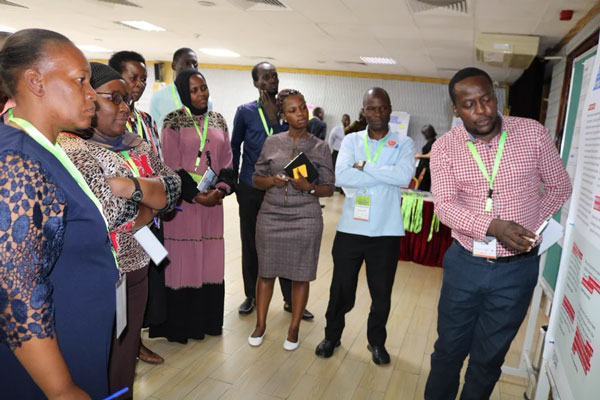
Kampala, Uganda | THE INDEPENDENT | Ugandans want screening for tuberculosis incorporated into other healthcare services such as antenatal care or other hospital visits. This is part of the recommendations following a joint study conducted by the Ministry of Health and a team of TB researchers to find new solutions for treating and preventing the disease.
According to Achilles Katamba, a researcher at the World Alliance for Lung and Intensive Care Medicine in Uganda (WALIMU) who led the study, their baseline investigations found that some individuals who suffer from TB never show any symptoms and continue spreading the infection unaware whereas some individuals who get symptoms fear to be ridiculed and shun health care.
As a solution to this, the researchers say study participants suggest TB screening as people seek other health care services just like how people get their blood pressure checked.
The study was undertaken in Mpigi, Kampala, and Wakiso districts where researchers visited households within their communities breaking the practice of having cases detected at health facilities among people who seek care on their own mostly after getting suspicious symptoms.
On his part, Joseph Gita, a member of the research team says participants reported the bad attitude of health workers to be a huge turn-off for them to seek TB care, saying that the medics stigmatize them once they mention symptoms consistent with the disease.
The findings come at a time when the Ministry of Health is grappling with a consistently high number of newly infected cases each year and a heightened threat of multi-drug resistant TB. Commenting about the community recommendations where participants also asked for more training of health workers, having facilities stocked with drugs that reduce TB drug side effects, and being given nutritional supplements, Dr. Stavia Turyahabwe, who heads the National TB program, said the biggest challenge remains awareness.
She says in 2022 alone, over 94,000 Ugandans were identified to be living with TB because of the outreaches they did in the community far more than what they had estimated. She says that they realized a lot was not being done correctly including not being able to integrate care as proposed by study participants.
The funding for this study, which is to the tune of US$ 5.5 million is being provided by the Korean International Cooperation Agency (KOICA) having been mobilized from an Air-ticket solidarity levy where every international flight ticket departing from Korea is charged one dollar.
In the next step of the study, Katamba says researchers will synthesize the findings and add suggestions that are applicable to the national TB program.
Apart from TB, the money goes to malaria and waterborne diseases. However, Uganda remains among the thirty high-burden countries worldwide with an annual incidence of 196 cases per 100,000 population and a TB – HIV Co-infection rate of 40%. Although some progress has been made in controlling the disease, experts are skeptical that the country will meet the 2030 target of eliminating the disease as a public health problem.
****
URN
 The Independent Uganda: You get the Truth we Pay the Price
The Independent Uganda: You get the Truth we Pay the Price



